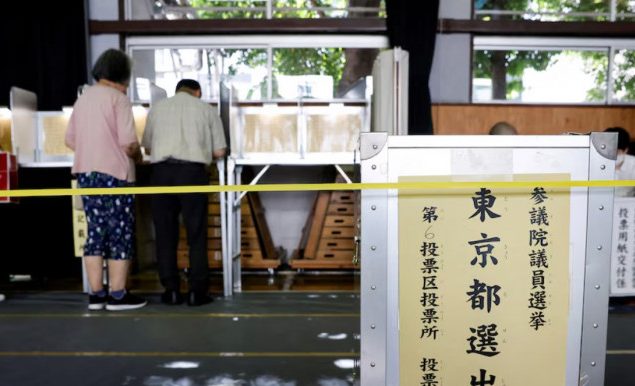

People cast their votes in Tokyo
Tokyo: Japan is holding a pivotal upper house election on Sunday, seen as a significant test of Prime Minister Shigeru Ishiba’s popularity and the stability of his ruling coalition.
Key issues influencing voters include the rising cost of living, particularly soaring rice prices, as well as concerns over Japan’s declining population and foreign policy challenges. Opinion polls indicate that Ishiba’s Liberal Democratic Party (LDP) along with coalition partner Komeito may fall short of the 50 seats required to maintain control of the 248-seat upper house.
While a poor electoral showing would not immediately threaten the government—since the upper house cannot file no-confidence motions—it could intensify political uncertainty. The results could prompt calls within the LDP for Ishiba’s resignation or the search for a new coalition partner.
The election also signals a rise in support for smaller opposition parties advocating for tax cuts and increased public spending. Notably, right-wing Sanseito is expected to gain ground with their platform to curb immigration, oppose foreign capital inflows, and reverse recent gender equality initiatives.
Polling stations opened early in the morning and are expected to remain open until late evening, with nationwide voting underway.
A record 21.5mn voters cast their ballots in early voting and polls last week suggested that overall turnout would be well above 55 per cent. Populist campaigning has included pledges of significant tax cuts.






